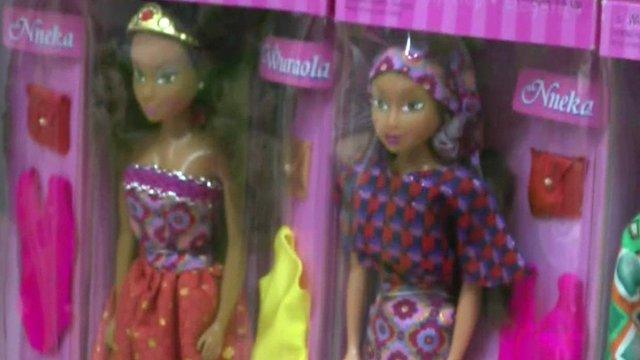Where are the black dolls in High Street stores?
- Published
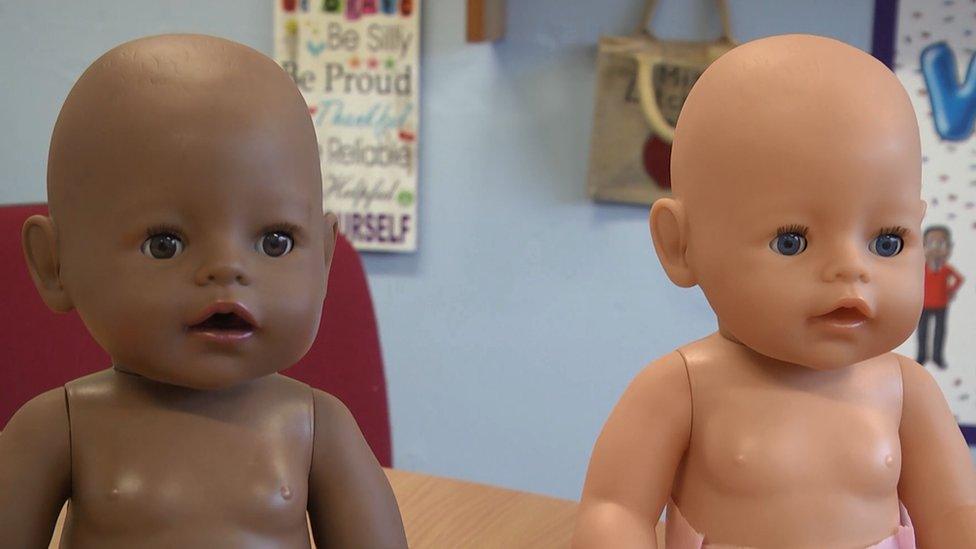
While black dolls can be bought online, they are absent from the shelves of many British toy stores
An internet search for black dolls will bring up about 20 million results in less than a second - but parents have discovered the toys to be increasingly hard to find on the shelves of High Street stores. Why is this?
Three-year-old Sofia-Lily is the only mixed-race girl in her playgroup. She often points out this difference to her mother Abbey Potter, who has been trying to reassure her child, partly through dolls that look like her.
"They make her feel like it's OK to look the way she does," said Mrs Potter, who is from Nottingham.
But sourcing these toys is not straightforward.
"I have found a lot of trouble finding dolls of any other ethnicity than white," she said. "I got a Cabbage Patch doll from eBay - it took me so long to find one and I think it was from America.
"My parents go to a lot of different countries like Mexico and Jamaica and they get Sofia-Lily dolls from these places.
"On her first holiday, we went to Spain and I found these dolls that were hard-bodied and smelt like cocoa butter. The next year, we found dolls with curly and different types of hair.
"I would say to big toy manufacturers that they need to evolve and they need to produce more dolls of different varieties: race, disability, size. If they don't, it could affect our children, because they grow up having been affected by all sorts of things."
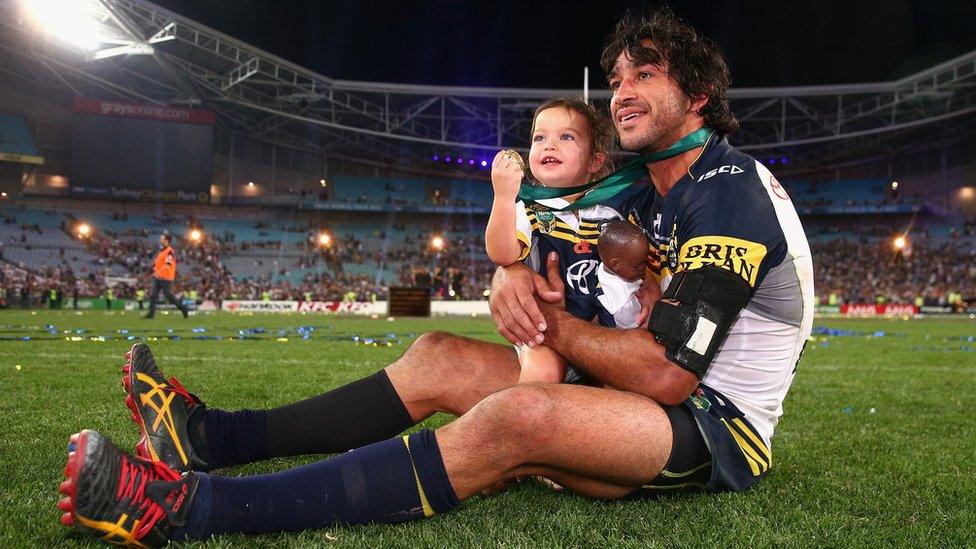
A dark-skinned doll, carried by Johnathan Thurston's daughter Frankie at last year's Australian Rugby League final, was seen as a moment of inclusion and diversity
Despite the revolution of internet shopping, some families' finances do not stretch as far as a bespoke broadband package - and on the High Street, they can find their retail options are significantly reduced.
Abbey Rose, 32, who has 11-year-old and four-year-old girls and a three-year-old boy, said a lack of black dolls could stunt a child's emotional development, leading them to be "less affectionate".
"My four-year-old daughter said she wanted a baby doll for Christmas," said the black mother-of-three from Nottingham.
"I said: 'Do you want a white or black one?' She said a white one because 'they were prettier'."
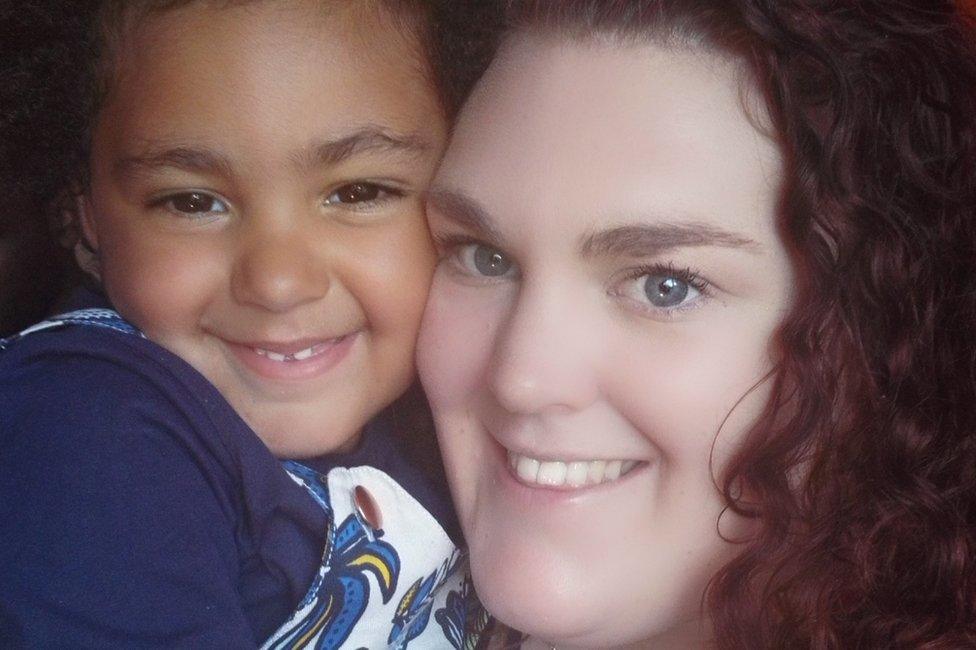
Abbey Potter, pictured with daughter Sofia-Lily, has called on toy manufacturers to "evolve" and produce more black dolls
But why are black dolls and toys absent from the shelves of many stores in the UK? Is the demand just not there?
First, let's run some numbers.
Census data for 2011 from the Office for National Statistics (ONS) showed a population in England and Wales of 56,075,912. About 14% of these people are from non-white backgrounds - so is that enough of a market for toy companies to make big bucks?
Given that estimated 14% equates to nearly eight million people, the answer would seemingly be yes. Additionally, this somewhat unscientific calculation is assuming white parents solely buy white dolls for their children.
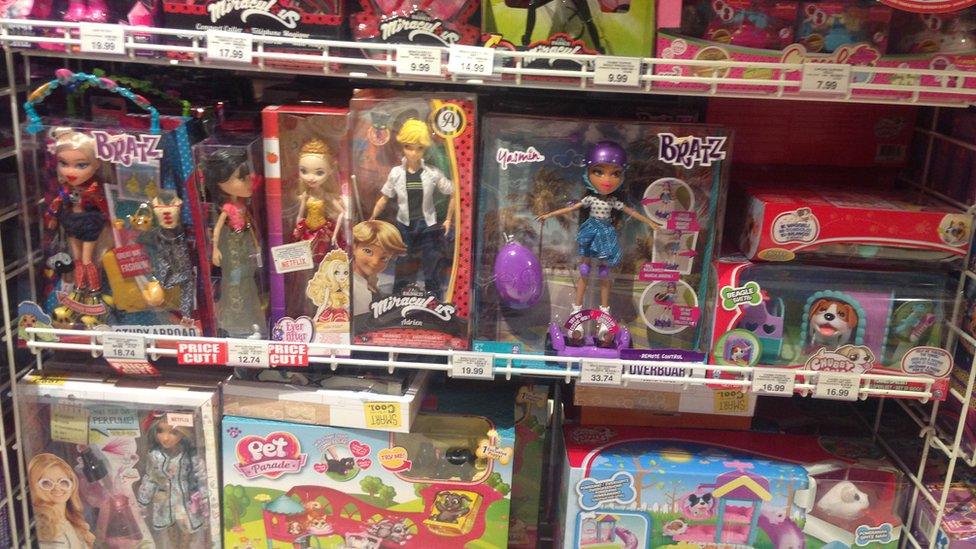
While most people in England and Wales are from white backgrounds, parents believe there is more than enough demand for a greater number of black toys to feature on the shelves of high street stores
But it would appear that a lack of demand is the underlying narrative from toy firms in the UK.
An email sent in October 2015 by an executive at Zapf Creation - the firm behind the famous Baby Born and Baby Annabell dolls - said the sales of an ethnic version of its Baby Annabell went "step-by-step down" from 1998 to 2013.
The executive said at the end of 2013 it was decided that production of this doll would stop as of 2014.
"As a public limited company, we are forced to make decisions like that if business figures do not justify to keep a product in the range," the executive said.
A Zapf Creation spokeswoman told the BBC: "Whilst the black version of the Baby Annabell doll was discontinued due to lack of demand, the black version of the Baby Born Interactive doll is still in production and available to all UK toy retailers. However, some retailers take the decision not to stock all versions of the dolls and accessories due to shelf space constraints."

Lecturer Sheine Peart said white dolls and ethnic dolls should be "side by side" on the shelves
Speaking at the annual Toy Fair in London, Peter Ireland, from Bigjigs Toys Ltd, said the importance of black dolls was clear, but added a firm's ability to sell them might depend on the company's size.
"There's no reason why we shouldn't stock black dolls... we have far more white dolls in our range as the sales on these are greater than those of black dolls, but if we don't stock any then people are never going to get black dolls," he said.
"If you're [a business that is] all over the world, then you've got a bigger market, but if you're just in the UK, your market's a bit limited."
Numerous toy companies were contacted several times by the BBC. The Entertainer declined to comment, while Disney, Smyths Toys and Toys R Us failed to respond.
An organisation that represents toy manufacturers, the British Toy & Hobby Association, said in a brief statement: "Toy makers offer a diverse range of dolls, including different ethnicities."
Last year, Mattel introduced its new generation Barbies, a moment hailed by black rapper, actor and producer Queen Latifah as "the industry catching up with what the public wants".
But a walk around four major toy store departments in ethnically-diverse Nottingham - John Lewis, Toys R Us, The Entertainer and Disney - garnered a total of three types of black doll on sale.

BBC News searches the shelves for black dolls
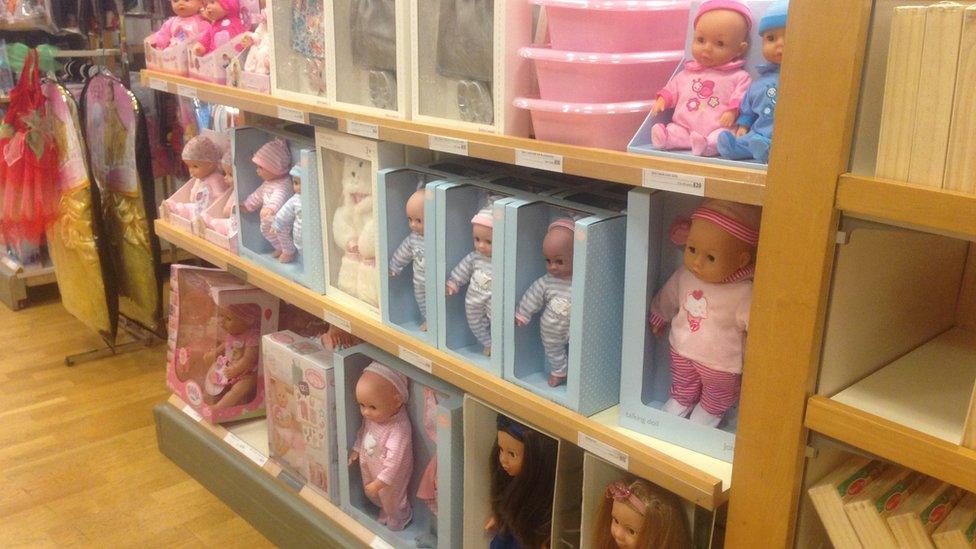
BBC News came up short in its quest to find black toys and dolls in Nottingham's John Lewis store
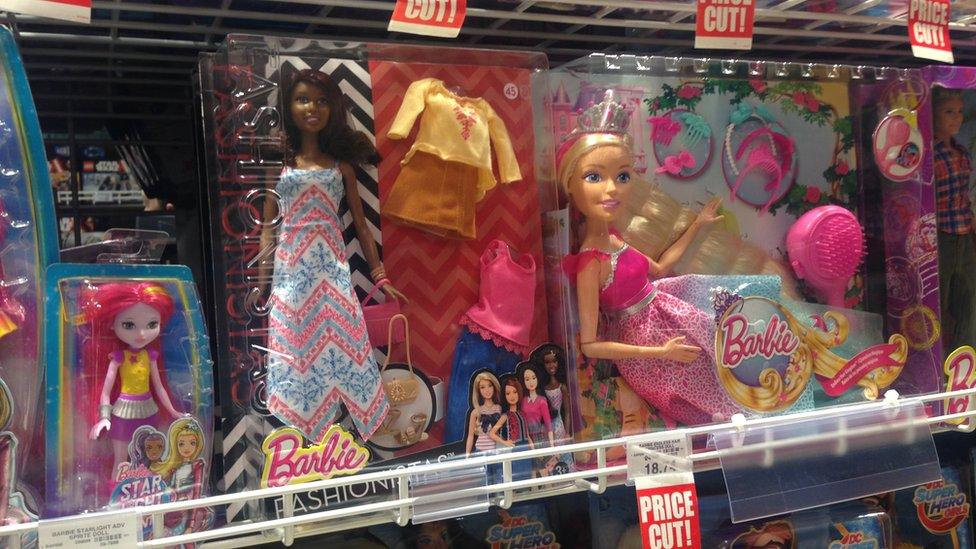
A black doll by Barbie manufacturer Mattel was found inside Toys R Us
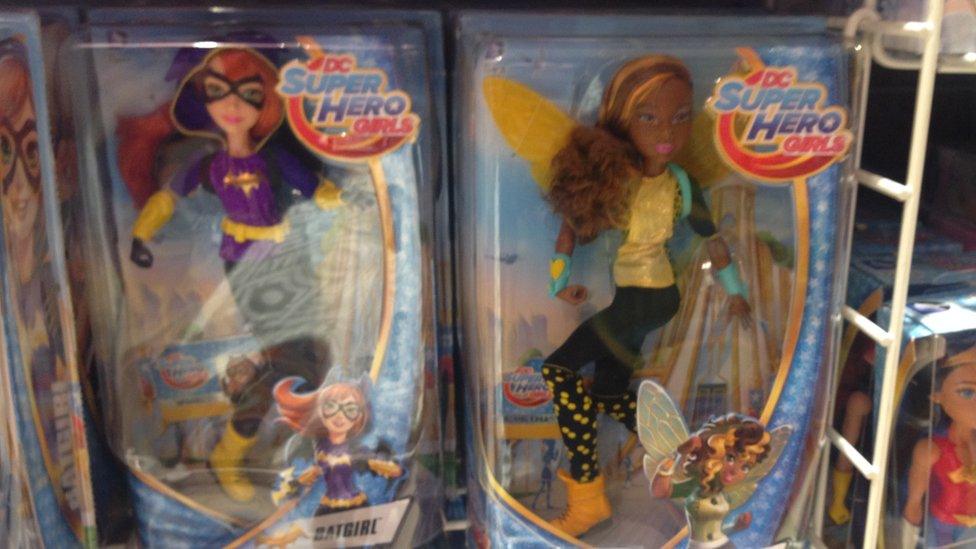
In the same store, a dark-skinned DC Super Hero Girl was found - but the vast majority of the toys were white
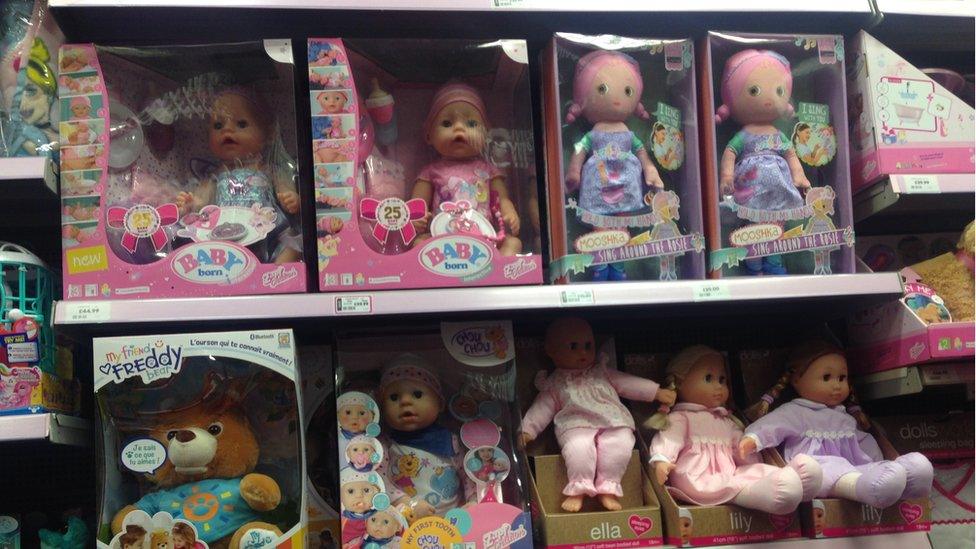
No black toys were found in The Entertainer store in Nottingham
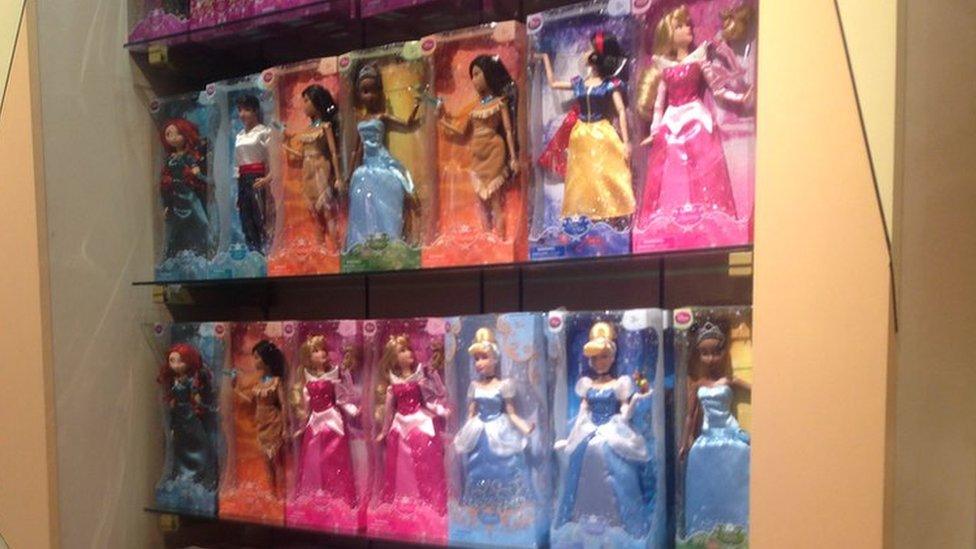
One type of black doll - based on Princess Tiana in The Princess and the Frog - was on sale at the Disney store in Nottingham

BBC journalist Khia Lewis-Todd, who has made a film on this subject, said the toys currently on offer "do not support" her daughter's culture.
"Carrying out the doll test, external at a school and youth group in Nottingham and going to the Toy Fair opened my eyes in terms of how some children portrayed toys of ethnicity, and how some suppliers approach them," she said.
"Some suppliers believe they are important, but if something doesn't sell as well, why should they continue to make it? Some critics have argued this is putting profit over the importance of what children need to see."
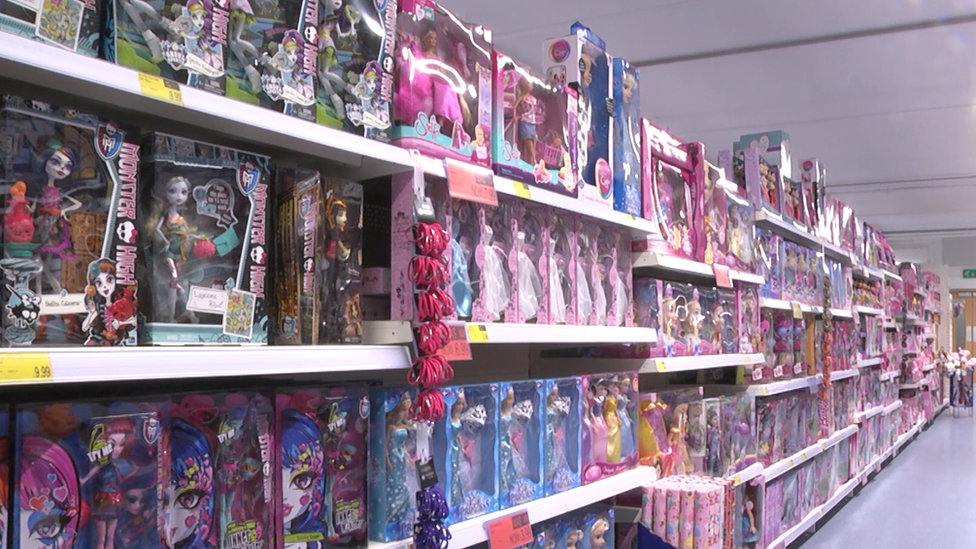
Accurately representing physical features is just as important as offering dolls of different skin colours, according to the Race Equality Foundation's Jane Lane
Jane Lane, from the Race Equality Foundation, believes the issues are not solely to do with colour.
"The key issues, I think, are not only a range of skin colour differences but accurate depictions of physical features," she said. "Mouth, lip shapes, nose and eye shapes and hair texture.
"The main point about black dolls is they are, for a child, white or black, a true three-dimensional representation of real people - unlike book pictures and jigsaws.
"They need to be accurate because our society is... racist and dolls need to counter this by being positive and not stereotypical of some mythical concept."
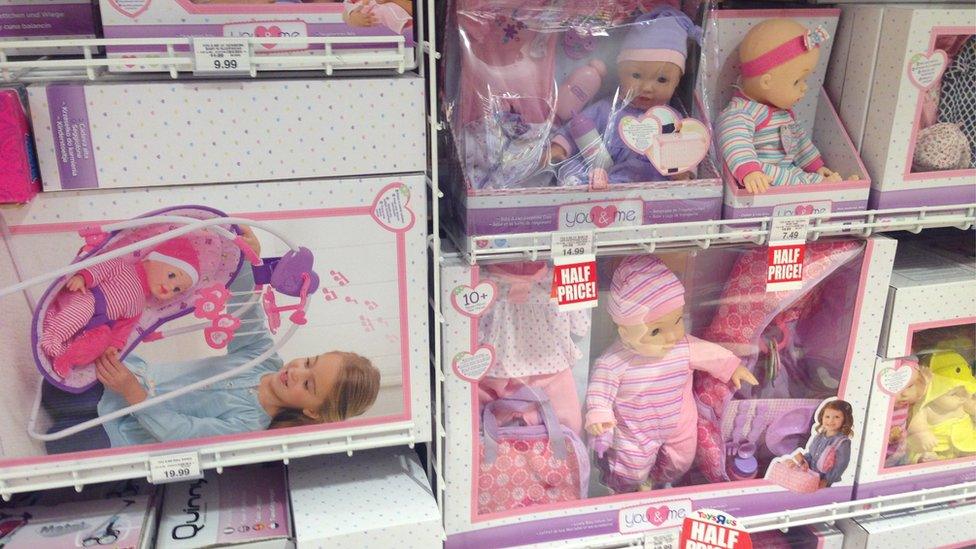
Toy manufacturers should work closely with local communities to properly assess demand, says lecturer Sheine Peart
Sheine Peart, a lecturer at Nottingham Trent University, said a lack of black dolls "marginalises" black children.
"If I want to have black figures, Lego figures provide that, as do Playmobil, and I can buy a black Barbie and a black male doll called Steve - who's the equivalent of Ken," she said.
"I can buy them, but I have to hunt them out if I want to buy them as a parent. I've never seen this black Steve anywhere but I've seen Kens in the shops - it should almost be side by side.
"If there's a black child, and they see no black toys, it almost creates a colonial environment and that effectively says, 'there's no place for me'.
"It positions the black child as an outsider and not integral to society. It marginalises them. Psychologically, that probably will have some impact."
Ms Peart has called on schools across the country to help kick-start a change.
"The dolls need to be marketed more, displayed more and advertised more, and supermarkets can't put them on the shelves unless the manufacturers are producing them," she said.
"I'd like to see schools ensure they have a stock that is available and a stock that is replenished.
"I would also like to see manufacturers work with youth groups, schools and other members of community groups so they can find out [the need]. Making things happen is not just a case of money and availability, it's also a case of will."
- Published28 January 2016
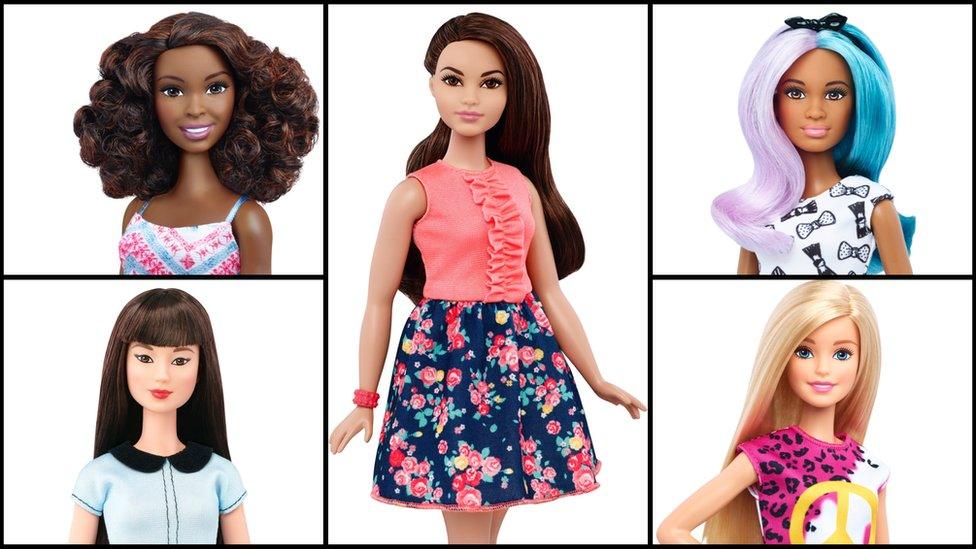
- Published5 October 2015
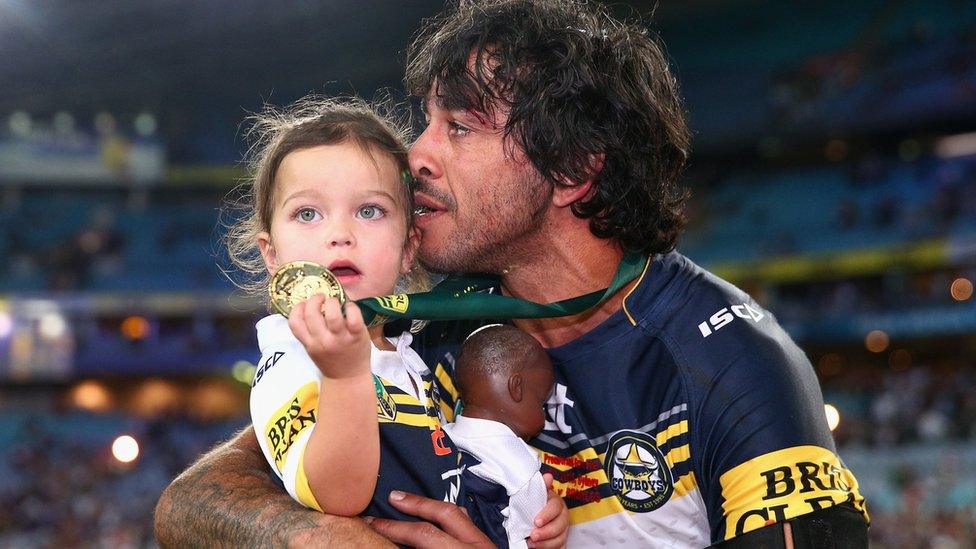
- Published27 February 2015
